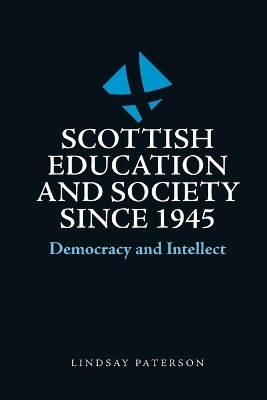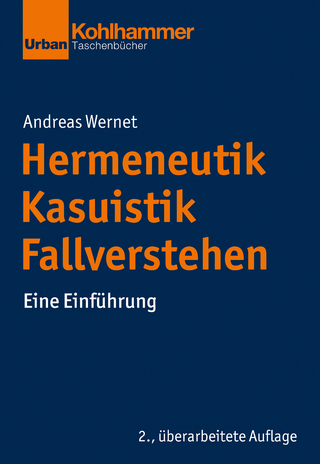
Scottish Education and Society Since 1945
Democracy and Intellect
Seiten
2023
Edinburgh University Press (Verlag)
978-1-4744-9841-8 (ISBN)
Edinburgh University Press (Verlag)
978-1-4744-9841-8 (ISBN)
Examines education and social change in Scotland through analysis of a unique series of historical social surveys.
Uses a unique series of social surveys to study education and social change in Scotland
Presents Scotland's internationally unique series of surveys of school students, from the late 1940s to the new century, with no parallel internationally in its longevity, range of topic, and depth
Uses Scotland as a case study as it experienced all the major educational changes of the developed world in the second half of the 20th century
Draws comparison to domestic education reform in England and Wales
Draws comparison internationally with the rest of Europe and north America, and especially with France, the Netherlands and Ireland
The social basis of these changes is systematically investigated: who benefited, who did not, did these divides narrow or widen, and what are the consequences for opportunity and civic values?
The debate about Scottish independence has been transformed by this growth of education, especially among young people born since the 1960s who have been the main beneficiaries of educational expansion.
Scotland developed a series of educational surveys between the late-1940s and the early-21st century that allow the country's experience of education to be studied in systematic detail. No other country has an archive of this length and depth. The surveys include evidence on pupils' curriculum, attainment, subjective experience of school, and destinations after leaving school, as well as details of their social characteristics and of the secondary schools which they attended. By linking also to archival evidence on the histories of schools, the book's analysis investigates the interplay between deliberate policy and wider social change. The transformation of education in this period is accompanied by equally important economic restructuring which has led to unprecedented changes in the way that education relates to lifelong opportunity in the twenty-first century. The book investigates how these changes have underpinned Scotland's civic values, and have contributed fundamentally to shaping the debate about the country's constitutional future.
Uses a unique series of social surveys to study education and social change in Scotland
Presents Scotland's internationally unique series of surveys of school students, from the late 1940s to the new century, with no parallel internationally in its longevity, range of topic, and depth
Uses Scotland as a case study as it experienced all the major educational changes of the developed world in the second half of the 20th century
Draws comparison to domestic education reform in England and Wales
Draws comparison internationally with the rest of Europe and north America, and especially with France, the Netherlands and Ireland
The social basis of these changes is systematically investigated: who benefited, who did not, did these divides narrow or widen, and what are the consequences for opportunity and civic values?
The debate about Scottish independence has been transformed by this growth of education, especially among young people born since the 1960s who have been the main beneficiaries of educational expansion.
Scotland developed a series of educational surveys between the late-1940s and the early-21st century that allow the country's experience of education to be studied in systematic detail. No other country has an archive of this length and depth. The surveys include evidence on pupils' curriculum, attainment, subjective experience of school, and destinations after leaving school, as well as details of their social characteristics and of the secondary schools which they attended. By linking also to archival evidence on the histories of schools, the book's analysis investigates the interplay between deliberate policy and wider social change. The transformation of education in this period is accompanied by equally important economic restructuring which has led to unprecedented changes in the way that education relates to lifelong opportunity in the twenty-first century. The book investigates how these changes have underpinned Scotland's civic values, and have contributed fundamentally to shaping the debate about the country's constitutional future.
Lindsay Paterson is Emeritus Professor of Education Policy, School of Social and Political Science, University of Edinburgh. His main academic interests are in education, civic engagement and political attitudes. He has contributed to many debates in Scotland since the early 1990s on education, on social change, and on politics. He is a Fellow of the British Academy and a Fellow of the Royal Society of Edinburgh.
| Erscheinungsdatum | 03.05.2023 |
|---|---|
| Zusatzinfo | 35 B/W illustrations 41 B/W tables 76 b/w illustrations (35 figures, 41 tables) |
| Verlagsort | Edinburgh |
| Sprache | englisch |
| Maße | 156 x 234 mm |
| Themenwelt | Sozialwissenschaften ► Pädagogik ► Allgemeines / Lexika |
| Sozialwissenschaften ► Pädagogik ► Bildungstheorie | |
| Sozialwissenschaften ► Pädagogik ► Schulpädagogik / Sekundarstufe I+II | |
| ISBN-10 | 1-4744-9841-8 / 1474498418 |
| ISBN-13 | 978-1-4744-9841-8 / 9781474498418 |
| Zustand | Neuware |
| Informationen gemäß Produktsicherheitsverordnung (GPSR) | |
| Haben Sie eine Frage zum Produkt? |
Mehr entdecken
aus dem Bereich
aus dem Bereich
Einführung in die Theorie transformatorischer Bildungsprozesse
Buch | Softcover (2023)
Kohlhammer (Verlag)
34,00 €
Eine Einführung
Buch | Softcover (2023)
Kohlhammer (Verlag)
36,00 €


